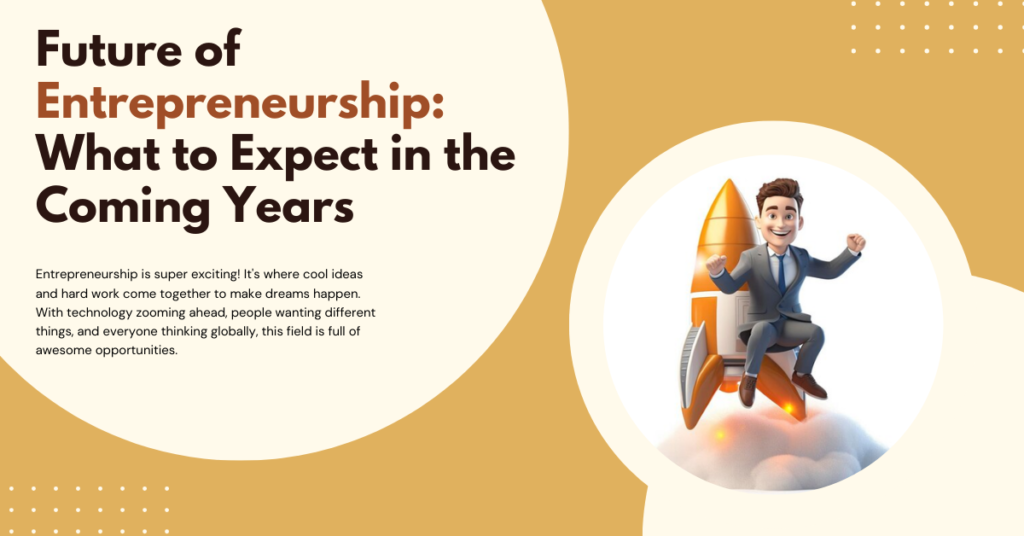
Entrepreneurship is super exciting! It’s where cool ideas and hard work come together to make dreams happen. With technology zooming ahead, people wanting different things, and everyone thinking globally, this field is full of awesome opportunities. Let’s chat with Mike Sim about how to rock it as an entrepreneur in a world that’s always changing. We’ll cover everything from cool tech to what people want. No matter how much experience you have, you will need to learn how to keep up with the competition in today’s business environment.
Innovative Technologies
In today’s fast-paced world, technology is always evolving and shaping how businesses operate. To stay ahead, it’s important to keep up with these changes. Let’s take a look at some of the big advancements that will impact businesses in the future.
Artificial Intelligence (AI) and Automation:
AI is changing industries by helping make decisions based on data, working faster, and automating tasks. Companies use AI to make customers happier, save money with virtual helpers and predict what will happen next.
Blockchain and Cryptocurrency:
Blockchain technology is changing how we do finance and other stuff by making transactions safe and clear. New kinds of money are emerging as a result of cryptocurrencies like Bitcoin and Ethereum. They’re used for lots of things, like tracking products and doing finance without a big company controlling it all.
Virtual Reality (VR) and Augmented Reality (AR):
Virtual reality (VR) and augmented reality (AR) are changing how businesses connect with customers and staff. They offer exciting chances for creative marketing and interactive training. These technologies make experiences more immersive and engaging, opening up new doors for innovation.
Shifting Consumer Behaviors
As a result of shifts in culture, technology, and social norms, consumer behaviors are continuously changing. For entrepreneurs to remain relevant and satisfy the demands of their target market, it is imperative that they comprehend these changes. In this section, we’ll explore some of the key trends shaping consumer behavior in the coming years.
Rise of E-commerce and Digital Marketplaces
Mike Sims claims that more customers are using e-commerce platforms to meet their needs for purchases because of how convenient online shopping is. As technology advances, online shopping will become even more accessible and seamless. Entrepreneurs can capitalize on this shift by leveraging digital marketplaces to reach a wider audience and streamline the buying process.
Demand for Personalized Products and Experiences
Customers demand individualized experiences and goods that suit their unique tastes and lifestyles in today’s hyperconnected world. Businesses are coming up with creative ways to customize goods and services to match the needs of specific clients, from recommendations to customizable apparel. Companies that prioritize personalization will witness a rise in customer satisfaction and brand loyalty.
Sustainability and Ethical Consumer Trends
With environmental and social concerns in the spotlight, shoppers care more about how their purchases affect the world. They want goods that are eco-friendly and made ethically, and they want companies to be open about how they operate. Businesses that adopt sustainable and ethical practices will draw in these mindful consumers and help make the world a better place.
Changing Business Models
Business models in the fast-paced world of entrepreneurship are always changing to satisfy the needs of contemporary consumers and the rapidly developing technological environment. To continue being creative and competitive in the market, one must understand these developments. Let us now examine some of the major themes that are presently influencing business model transformation:
Subscription-Based Services:
In the modern subscription economy, customers are favoring access over ownership more and more. Businesses can benefit from the convenience, flexibility, and steady revenue streams that subscription-based business models provide. Meal kits and streaming services are two examples of subscriptions that have disrupted traditional industries and are still growing.
The Startup Economy and Flexible Work Trends:
The rise of the gig economy has transformed the way people work and do business. Freelancers, independent contractors, and remote workers now comprise a significant portion of the workforce. This trend offers opportunities for flexible employment arrangements and cost-effective solutions for businesses.
Impact of Decentralized Finance (DeFi):
Decentralized finance, or DeFi, uses blockchain technology to provide financial services directly to customers without the need for middlemen. DeFi platforms provide improved accessibility, transparency, and efficiency in financial transactions through peer-to-peer lending and decentralized exchanges.
Further changes in consumer behavior, technology adoption, and market dynamics are reflected in these evolving business models. By adopting these trends, business owners can open up new avenues for their enterprises’ expansion and innovation. Businesses can prosper in the changing business environment of the future by remaining flexible and agile.
Bottom Line:
As Mike Sims concluded, entrepreneurs must be able to adjust to change in order to remain competitive. Flexibility is essential for utilizing new technologies, comprehending changing customer needs, and modifying business models. In the changing business environment ahead, entrepreneurs can prosper by monitoring emerging trends and remaining receptive to new ideas. Never forget that success requires constant learning, flexibility, and the guts to take advantage of new opportunities. Prepare to lead the way in entrepreneurship with creativity and confidence.
















